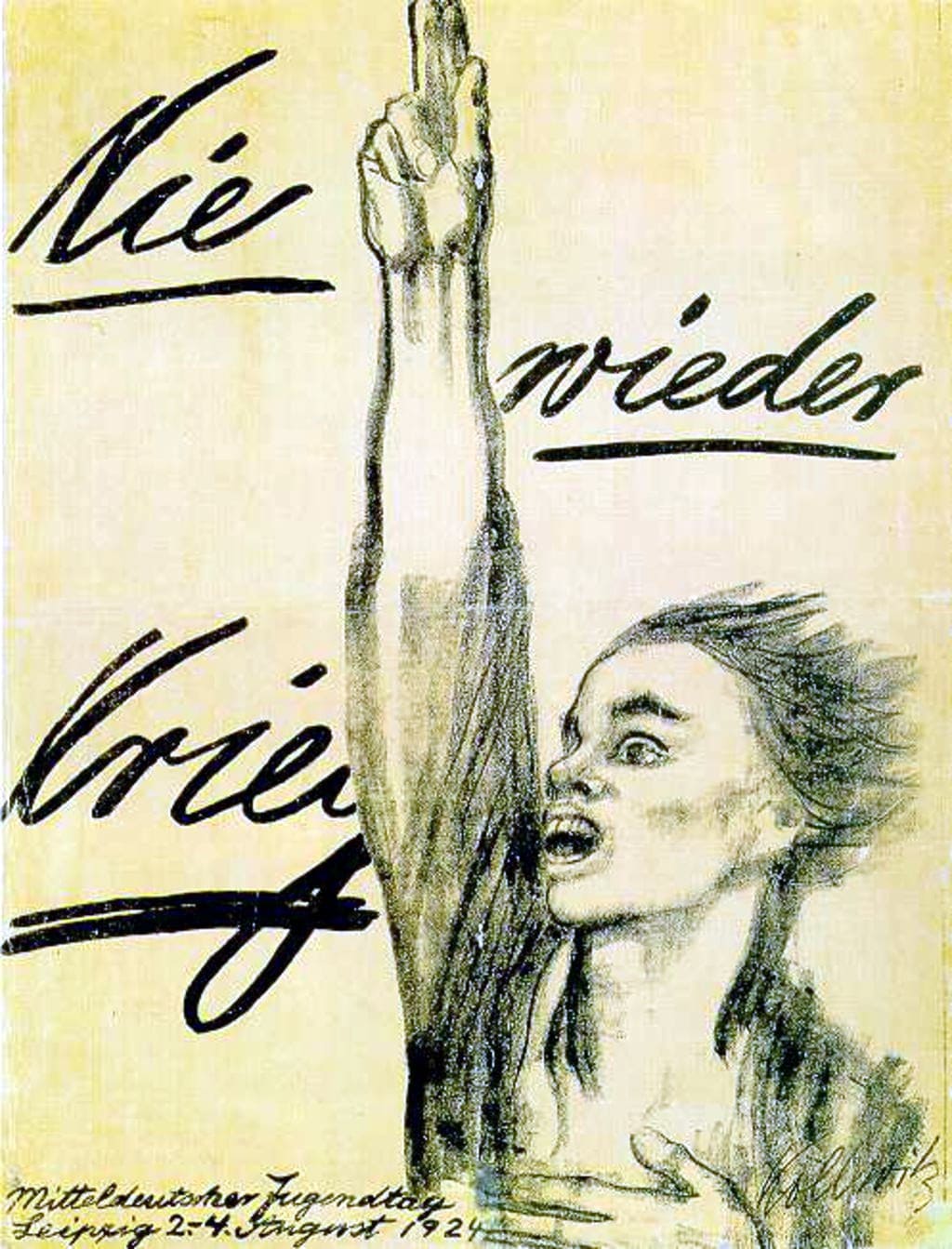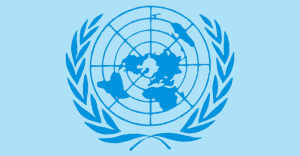We sleepwalkers – Never again war
One hundred years after 1914, we sleepwalkers are watching war and threats return to Europe, directed against a state that has been sovereign since 1919. The peace movement is silent. There is no initiative of the people to counter the return of the scourge of war. We sleepwalkers or Never again war.

Käthe Kollwitz: Never again war, 1923. photo: Wikipedia
WE THE PEOPLES OF THE UNITED NATIONS,
DETERMINED
to save succeeding generations from the scourge of war, which twice in our lifetime has brought untold sorrow to mankind, and
to reaffirm faith in fundamental human rights, in the dignity and worth of the human person, in the equal rights of men and women and of nations large and small, and
to establish conditions under which justice and respect for the obligations arising from treaties and other sources of international law can be maintained, and
to promote social progress and better standards of life in larger freedom,
AND FOR THESE ENDS
to practice tolerance and live together in peace with one another as good neighbours, and
to unite our strength to maintain international peace and security, and
to ensure, by the acceptance of principles and the institution of methods, that armed force shall not be used, save in the common interest, and
to employ international machinery for the promotion of the economic and social advancement of all peoples,
HAVE RESOLVED TO COMBINE OUR EFFORTS
TO ACCOMPLISH THESE AIMS
In his book “The Sleepwalkers”, the historian Christopher Clarke analyzes the various actors in the July crisis of 1914 and concludes that this war was entirely “improbable” in their eyes, thus introducing a moment of chance into the historical process.
History does not repeat itself. However, if one compares the analyses and opinions of recent weeks, the analogies are sometimes strikingly obvious. Hardly anyone of the generations “spoiled” by almost 80 years of peace in Europe can still imagine what is at stake if the peace order in Europe and worldwide, guaranteed by the UN, should break down at its core.
For unlike the interventions of the Red Army in the GDR, Hungary or Prague, in 1953, 1956 and 1968, or the conflicts in the disintegrating Yugoslavia, this time we are dealing with an open threat to a completely sovereign state not belonging to any alliance. This was already the case in 2014 with Russia’s annexation of Crimea, but now we are dealing with an annexation of a complete sovereign state with a huge territory. The events in Georgia and the Caucasus are also not comparable in this respect.
Russia’s imperialism
So we are confronted with a great power acting imperially. The dangerous thing is obviously that the Russian side considers itself entitled, intellectually legitimized with historiographic constructions, to think of its neighbor, sovereign since 1919, as a kind of subject who is obliged to some kind of compliance. It should be said to the leftists, who still mourn the Soviet Union, that today they should analyze Russia as a capitalist state with a state-monopolistically intertwined structure and corresponding imperialist expansion and domination desires from their traditional Marxist way of thinking, instead of always letting nostalgic tears of apology flow and practicing completely arbitrary tolerance towards an imperialist acting great power.
This imperialist imagination of parts (?) of the Russian leadership is of yesterday, but it is nevertheless an attitude of the counterpart to which all other actors must react. The answer can only be to refuse any discussion of historical “rights” for military intervention against a neighboring state, with reference to the UN Charter. “Firmly determined to save future generations from the scourge of war,” we reaffirm “our belief (…) in the equal rights (…) of all nations, great and small.”
A Russian petition
A group of Russian intellectuals, including Tatyana Bonner, daughter of Yelena Bonner, has published the remarkable petition “If only there were no war”.
“We, responsible citizens of Russia and patriots of our country, appeal to the political leadership of Russia and openly and publicly challenge the war party formed within the authorities.
We express the point of view of the part of Russian society that hates war and considers it a crime, even the use of military threat and criminal style in foreign policy rhetoric.
We hate war, and you think it is acceptable. We stand for peace and prosperity for all citizens of Russia, and you risk their lives and fate in your political game. You deceive and use people, and we tell them the truth. We say this in the name of Russia, not you, because the peoples of Russia, who have lost millions of people in the wars of the past, have lived for many decades by the saying “as long as there was no war. Have you forgotten?”
This point of view is also important for us Western Europeans. We need, among all other efforts, a petition movement, a new peace movement, to stand in the arm of Russian great power aspirations. However, if I enter “petition” and “Ukraine” in the Internet, I find only disinformation probably directed by the Russian side. “For the sake of world peace: democratically divide Ukraine” is the top headline on Google. This is shameful propaganda that throws all principles of international law to the wind.
An end to shirking in Germany
In the same way I lack any understanding for the position of a German talk-show host, who maltreated the Ukrainian ambassador with suggestive questions in a penetrating emergency-helper gesture, a là ‘why weapons, which would only prolong the war by a few days and thus create even more suffering?’ This fits in with an attitude of many Germans who conveniently cheat their way through history, who want to stay out of the question of defensive weapons by referring to the history of World War II, who even think of preventing such deliveries and thus indirectly grant Russia special claims against sovereign Ukraine. Fortunately, a political scientist then made one thing clear in the talk show broadcast. It is about deterrence. And what kind of lesson is that supposed to be from Germany’s special history, claiming that because we Germans have caused so much suffering and committed so many crimes there, we should now restrain ourselves? The lesson of World War II was not the approval of spheres of influence and holding back from aggressive actions of a great power, but the commitment to collective respect for sovereignty and international treaties. And to the enforcement of an international peace order, by force if necessary.
The German government’s position that NATO accession is not even up for discussion at the moment is soft and indirectly supports the Russian interpretation that it has the right to its own spheres of influence and to interfere in the decisions of sovereign neighboring states.
Directives of the UN Charter
The UN Charter, in Chapter VII, explicitly grants other states the right to assist threatened states in their defense. The UN Security Council will meet. Although there is Russia’s right of veto here, which is why measures under Articles 40, 41 or even 42 cannot be enforced, the logic and spirit of this passage of the UN Charter explicitly assume that an aggressor against peace must be stopped by force of arms if necessary. This must be taken into account in bilateral action as well, in order to create a situation that makes the price too high for a potential aggressor. This, mind you, is the lesson of the states that were victims of Nazi Germany’s aggression in World War 2. We should adhere to it.
The petition of Russian intellectuals is clear: “Our position is extremely simple: Russia does not need war with Ukraine and the West. Nobody threatens us (Russia S.B.), nobody attacks us (Russia S.B.). Politics based on promoting the idea of such a war is immoral, irresponsible and criminal and cannot be conducted on behalf of the peoples of Russia. Such a war can have neither legitimate nor moral goals. The diplomacy of the country (the peoples of the world S.B.) cannot take any other position except categorical rejection of such a war.”
These are sentences that would be worthy of a European peace petition.
20.2.22 Stephan Bleek phd., historian and filmmaker


Leave A Comment